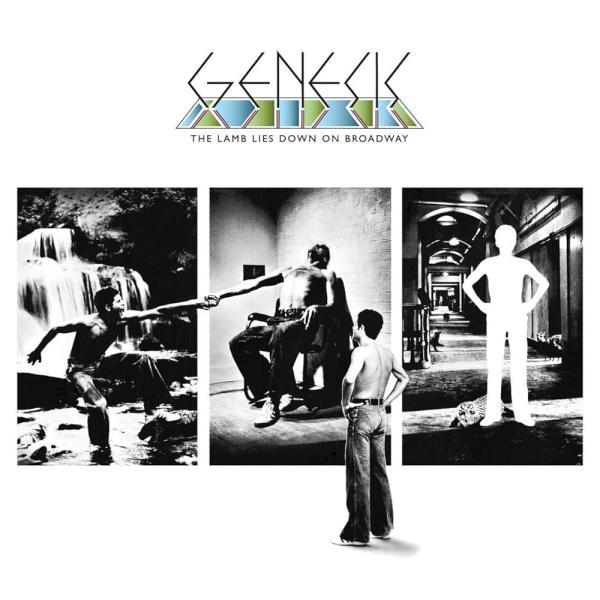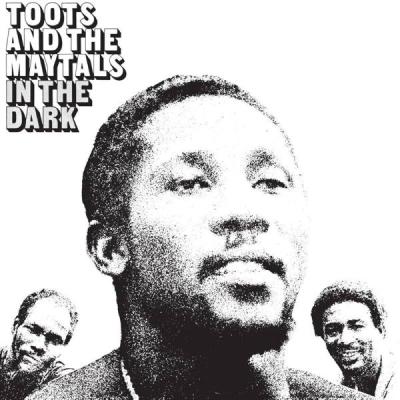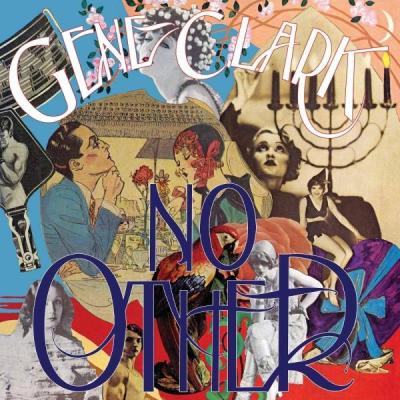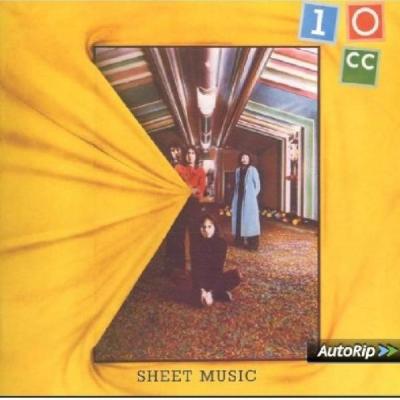


Genesis: The Lamb Lies Down On Broadway - Part 1
Album #200 - November 1974
Episode date - January 22, 2025
Like anyone else, I have my musical preferences and prejudices. If you’re at all discerning, it’s inevitable that you too have a taste profile that defines what you like and dislike. What makes me different – and absolutely insufferable to anyone who shares space with me – is that I see my own musical prejudice as a personality flaw.
There is music that I simply cannot stand to hear that is genuinely loved by some very intelligent friends of mine, so I can either (secretly) think of them as tasteless, or accept the fact that I’m incapable of understanding the qualities they discern in the same piece of music that has me running for the exit. If it’s popular on some level, and reasonably openminded people actually seem to enjoy it, then most assuredly the fault must be mine, so in an action that is the literal definition of self-abuse, I force myself to listen to the offending music over and over again, hoping to change my mind or at least discover a sense of understanding for what makes it ‘good’. In a quest to lose my prejudice, I play music that I hate almost as often as I play music that I love.
Pity my poor wife. Over and over again, I have forced myself through the Genesis catalog of albums for weeks at a time, not because I loved it, but specifically because I did not. I would persistently listen to one album at a time, specifically the one where I’m told I “absolutely must give it a chance.” I then sat down with “Foxtrot”, or “Wind and Wuthering,” or “Trick of the Tail”, or whatever and played the damn thing endlessly, desperate to shake off the stupidity that prevents me from appreciation. For forty years, more or less, I’ve tried this method with Genesis, but until “Selling England By the Pound” recently cracked my resistance (see entry #136), the result was always goose eggs. The complicated keyboard-driven arrangements always seemed to bring on a headache, which forced me to shut down. I probably listened to these damned albums more than my fan friends ever did, and yet I always came away even more convinced in my smug disdain than I was going in.
I found Genesis somewhat painful, but my dislike for them was nothing when compared to Electric Light Orchestra. For the exact same masochistic reasons, I recently forced myself to swallow ELO’s entire catalog in chronological order. It started promisingly, because I started with The Move (the band that spawned ELO) and I like their music. But then, Jeff Lynne enters the picture and his vision of ELO quickly takes control. Suddenly, every riff sounds contrived and every lyric opaque and insipid. The deeper his involvement, the worse my nausea, and I’m not exaggerating to use that word. The murky production buries all sorts of ridiculous production choices, especially the insane string glissandos that appear like clockwork, making the entire thing sound like a warped calliope. Eventually, I almost hope to be thrown from the ride so I can crawl into a corner and vomit. Nope, still not an ELO fan.
But then, a funny thing happened. I decided to go total hardcore and see what might happen if I followed this chronic self-abuse by playing an album contemporary to ELO, one which is often considered (by everybody in the world except me, apparently) to be a magnum opus of ‘progressive rock’. For maybe the fifteenth time in my life, I pulled out my copy of “The Lamb Lies Down on Broadway” and prepared myself for the worst. Depending on perspective, this album may be the last straw in overtly vague storytelling, or an elliptical work of genius. It was time to find out once and for all what I really thought about it. The alleged ‘story’ of a Puerto Rican named Rael adrift in New York City seems so obtuse and directionless that it made the Who’s “Tommy” seem like a paragon of clarity (Is it only a coincidence that the Who released a formless song called “Rael” back in 1967? Hmmm….). I will leave the interpretive elements of this album to those inclined to deciphering semaphore and hieroglyphics, but it is odd to note that all of this ambiguity resulted from allowing Peter Gabriel to be the album’s sole lyricist, while the other bandmembers busied themselves by hammering out musical accompaniment. On record, it plays out like a hallucinogenic, dada-ist version of “West Side Story” meets “Alice in Wonderland.” After suffering through ELO, though, I noticed a shift in my attitude. The title song has a melody that lingers pleasantly. “Carpet Crawlers” and “Chamber of 32 Doors” are also memorable, even if seemingly meaningless. If you feel that complexity is the band’s raison d’etre then “Back in NYC” has a 7/8 rhythm that somehow still manages to drive hard. These were positive observations, so I played the album again, and a miracle happened. Compared to ELO, Genesis started to sound like heaven. Out, evil demon!
I almost can’t believe it, but persistence paid off. It took some self-induced torture by endlessly subjecting myself to something else that I really disliked before settling in with “The Lamb Lies Down on Broadway,” which somehow must have reduced my historically ‘allergic’ reaction to Genesis. As a whole, “The Lamb Lies Down on Broadway” can be heard as a pinnacle of achievement for progressive rock conceptualism, or a fatuous mess that is almost singularly responsible for the onset of punk rock. Either way, it is deeply influential, even if only for altering the course of music history in a polar opposite direction. Even though it confuses me, I now hear it as an incredibly effective work of art.
Now, maybe if I subject myself to nothing but death metal for three or four weeks, I might start to appreciate ELO….
Featured Tracks:
The Lamb Lies Down on Broadway
Fly on a Windshield
Broadway Melody of 1974
Cuckoo Cocoon
In the Cage
The Grand Parade of Lifeless Packaging
Back in N.Y.C.
Hairless Heart
Counting Out Time
Carpet Crawl
The Chamber of 32 Doors
November 1974 – Billboard Charted #41
Related Shows
- 1 of 19
- ››













